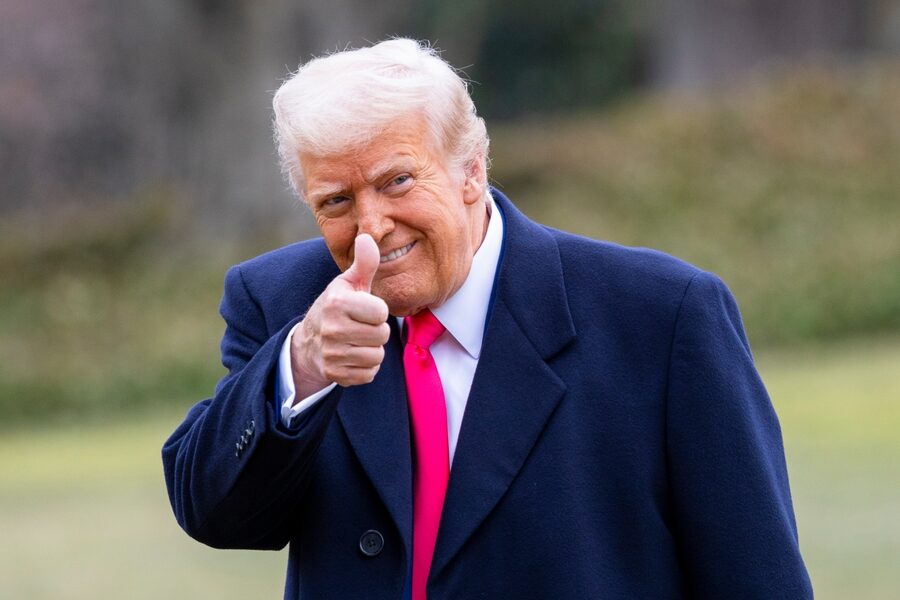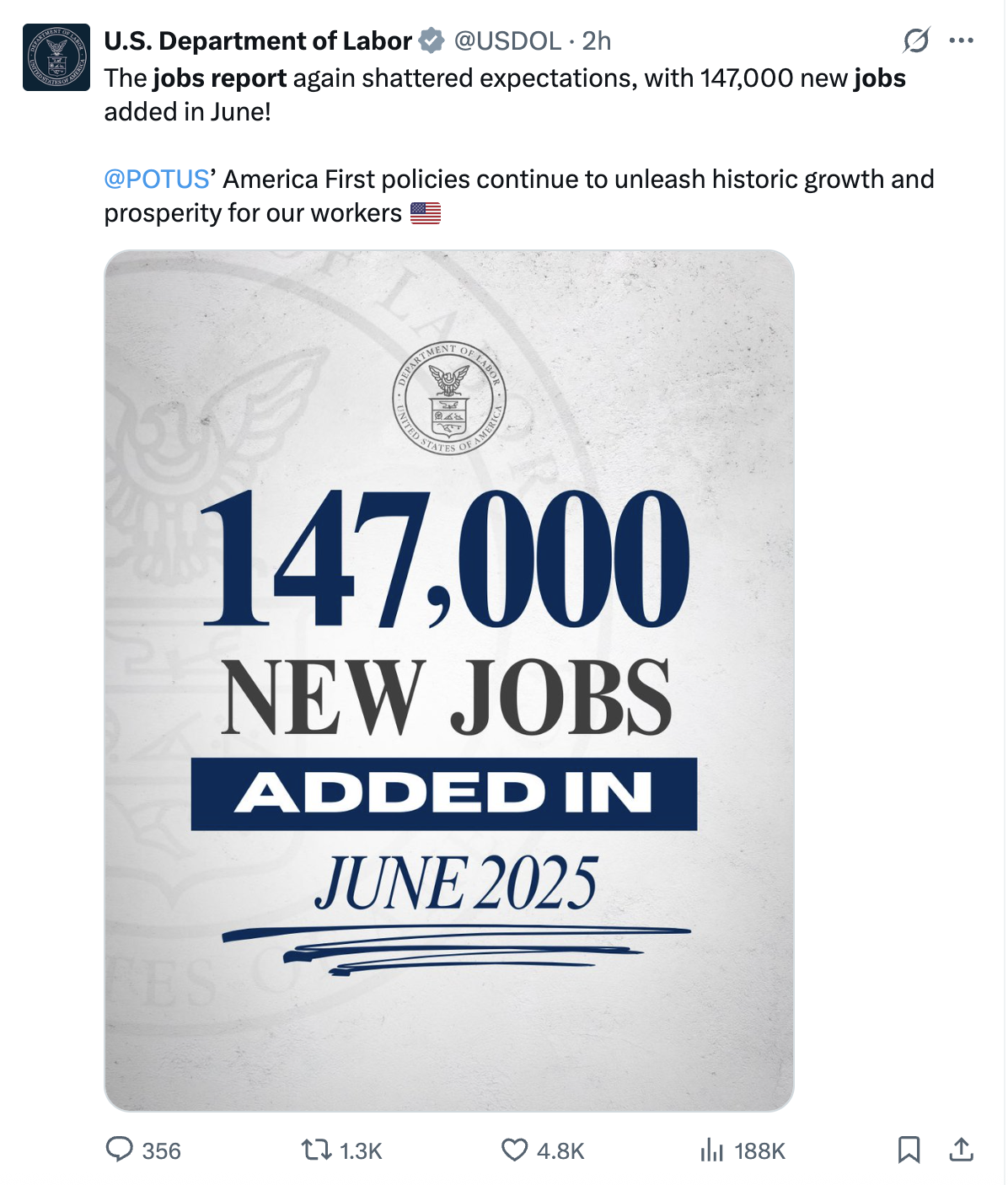Politics
NEW: Trump Vindicated Again By Jaw-Dropping Jobs Report

The Trump economy once again bested economists’ expectations for the month of June, posting a stellar explosion of jobs that further fuels a growing narrative that turbulence from the president’s tariffs is mostly behind the country now.
Steady hiring by U.S. employers last month resulted in 147,000 jobs being added across all nonfarm sectors, the U.S. Labor Department reported on Thursday. Economists polled by the Wall Street Journal expected job additions totaling 110,000.
The unemployment rate, which is estimated separately through surveys of U.S. households, fell to 4.1%, down from 4.2% in May.
At the same time, jobs reports from prior months have been revised upwards: The number of positions added in April and May was a combined 16,000 higher than originally reported, for example.
Healthcare, as well as state and local government, boosted the number of new hires last month. Arms of the federal government reported shedding a total of 7,000 jobs, but the overall number of government employees across the U.S. rose by 73,000.
Stock markets rose at the opening bell, signaling how traders appear increasingly confident in President Donald Trump’s ability to reach trade deals without punishing American employers with tariffs on imports.
Economists who spoke with the Journal pointed to sluggish activity in the manufacturing sector, which reported a decline in payroll for the second straight month.
“The underlying data tells you that we’re having a manufacturing recession,” said Henry McVey, head of global macro and asset allocation at KKR.
Another area to watch for future trends is the number of unemployed individuals still seeking work. That figure fell in June, inflating the headline number announced on Thursday.
Sung Won Sohn, a professor of finance and economics at Loyola Marymount University, said leisure and hospitality — areas that rely on immigrant labor — are posting anemic growth as well. Still, he called the jobs report a “very good” result for Trump overall.
“The fear of stagflation has been greatly exaggerated,” he told the Journal.

How industries reliant on immigrant labor handle the Trump administration’s mass deportation agenda will factor heavily into future jobs reports, Morgan Stanley economists wrote in a summary following the jobs report.
“We think we are starting to see a chilling effect on labor force participation from increased immigration enforcement,” it reads.
President Trump has received overtures from industry executives as well as his Secretary of Agriculture, Brooke Rollins, who originally helped broker a pause on farm and worksite raids, only to see the decision overturned days later.
On the trade front, Trump announced a significant deal with Vietnam on Tuesday over the future of its imports, resulting in zero tariffs for U.S. goods shipped overseas, including domestically made vehicles, which are extremely popular in Asia.
The agreement also boosts tariffs on pass-through trade, a route which China has exploited in recent years by sending U.S. goods through Vietnam to avoid costlier tariffs.
Trump has also struck early deals with the U.K. and China, adding to investors’ growing confidence about how the economy will unfold in his first year.
On Tuesday, Federal Reserve Chairman Jerome Powell again rebuffed Trump’s calls to lower rates, though he acknowledged the increasingly positive economic news.
“We’re simply taking some time,” he said. “As long as the U.S. economy is in solid shape, we think the prudent thing to do is wait and learn more and see what those effects might be.”

